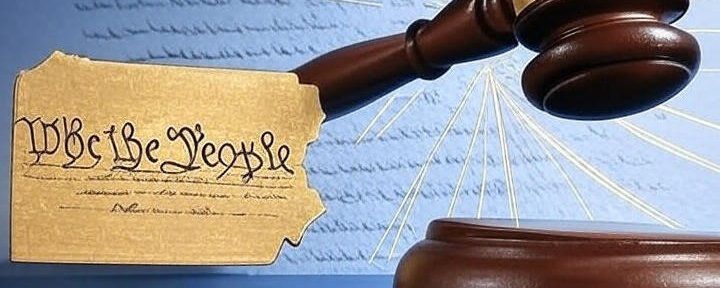


Breaking Down the Commonwealth Court’s Ruling on RTK Law: A Closer Look at Shepherd v. Pennsylvania Office of the Governor
Breaking Down the Commonwealth Court’s Ruling on RTK Law: A Closer Look at Shepherd v. Pennsylvania Office of the Governor
Have you ever wondered how far Pennsylvania’s Right-to-Know Law (RTK Law) stretches when it comes to digging into government records? The Commonwealth Court’s recent decision in Todd Shepherd and Broad and Liberty, Inc. v. Pennsylvania Office of the Governor (Case No. 900 C.D. 2024, decided June 5, 2025) pulls back the curtain on that very question. Here at Schnee Legal Services, LLC, we’re all about keeping you in the loop on the legal showdowns that define government transparency. In this post, I’ll unpack the court’s ruling—what went down, why it’s a big deal, and what it means for anyone keeping tabs on the RTK Law.
The Case Background: What’s the Story?
This case kicked off when Todd Shepherd and Broad and Liberty, Inc. fired off an RTK Law request to the Pennsylvania Office of the Governor. They were after a stash of documents tied to workplace misconduct investigations, zeroing in on Mike Vereb and Brianda Freistat. The wish list included manuals on handling misconduct probes, emails involving Vereb and Freistat, and communications about allegations—all spanning various dates in 2023. The Office didn’t roll out the red carpet; it handed over some redacted records but held others back, leaning on RTK Law exemptions like personal info, noncriminal investigative materials, and predecisional deliberations.
The petitioners weren’t thrilled, so they appealed to the Office of Open Records (OOR). The OOR gave them a partial win, greenlighting some disclosures but upholding denials on others. That landed the case in the Commonwealth Court’s lap, where the judges affirmed parts of the OOR’s call, flipped others, and kicked some issues back for a second look. It’s a classic tug-of-war: the public’s right to peek behind the curtain versus the government’s claim to keep certain doors locked.
The Legal Issues: What Was on the Line?
The court had a few hot potatoes to juggle:
- Misdirected Requests: Was the ask for misconduct manuals aimed at the wrong agency?
- Nonexistent Records: Did the Office prove some records just don’t exist?
- Exemption Claims: Were the withheld docs really shielded by exemptions for predecisional deliberations, noncriminal investigations, or attorney-client privilege?
These aren’t small potatoes—they’re the kind of questions that can ripple out and reshape how RTK Law requests play out down the road. The court had to weigh the RTK Law’s transparency push against the need to shield sensitive internal workings.
The Court’s Reasoning: How They Sorted It Out
The judges didn’t mess around—they rolled up their sleeves, reviewed documents in camera (that’s fancy talk for “in private”), and dissected the Office’s arguments. Here’s how they broke it down:
- Misdirected Request (Item No. 1): The court nodded to the OOR’s take that the request for manuals was off-target. They pointed the petitioners to the Office of Administration instead.
- Nonexistent Records (Item Nos. 2 and 7): The Office convinced the court it did its homework with a good faith search, and those records? They’re not there.
- Insufficiently Specific Requests (Item Nos. 3, 4, and 6): After eyeballing the docs, the court okayed withholding some under exemptions like predecisional deliberations, attorney-client privilege, and noncriminal investigative materials.
- Predecisional Deliberative Exemption (Item No. 5): Here’s where it gets juicy. The OOR said some docs were properly withheld as internal deliberations, but the court pushed back. They found stuff like travel reimbursements and employee separations didn’t cut it as “deliberative” and sent those back to the OOR to rethink under other exemptions.
- Noncriminal Investigative Materials (Item No. 8): The OOR ruled the Office didn’t prove these were exempt, and the court let that stand.
- Attorney-Client Privilege: The court gave a thumbs-up to shielding emails between the Office and its lawyers, even if they tied to press inquiries.
The court wasn’t shy about flexing its de novo review muscle—meaning they didn’t owe the OOR any deference and made their own calls on the facts and law.
The Decision: Who Won What?
It’s a split decision, folks:
- Affirmed: The court backed the OOR on noncriminal investigative materials (three docs stayed under wraps) and attorney-client privilege for Item No. 5 records.
- Reversed: They overturned the OOR on some predecisional deliberation claims, saying routine admin tasks don’t qualify.
- Remanded: A batch of docs got sent back to the OOR to weigh alternative exemptions the Office had pitched.
This mixed bag shows RTK Law cases aren’t black-and-white—they’re a puzzle where every piece gets a hard look.
Analysis: Why Should You Care?
What’s the big picture here? For starters, Shepherd v. Pennsylvania Office of the Governor hammers home a few key lessons:
- Aim Straight: Misdirect an RTK request, and you’re out of luck. Know your agency.
- Prove It: Agencies dodging disclosure better bring receipts—detailed affidavits and logs, not vague excuses.
- Exemption Limits: Not every internal chat is “predecisional.” The court drew a line—routine stuff like reimbursements doesn’t get a free pass.
- Privilege Holds: Attorney-client privilege is ironclad, even for press-related advice. Lawyers can strategize without spilling the beans.
For requesters, it’s a nudge to sharpen your asks and brace for pushback. For agencies, it’s a call to dot your i’s and cross your t’s when claiming exemptions. I love how this ruling keeps the RTK Law’s transparency heartbeat alive while respecting legit privacy lines. The court’s smackdown on overbroad “deliberative” claims is a win for accountability—agencies can’t just hide behind that label willy-nilly.
Conclusion: Keep Your Eyes Open
The Commonwealth Court’s take in Shepherd v. Pennsylvania Office of the Governor isn’t just legalese—it’s a playbook for navigating RTK Law’s twists and turns. At Schnee Legal Services, LLC, we’re here to decode these rulings for you, whether you’re chasing records or guarding them. Got questions about this case or your own RTK adventure? Hit us up at [insert contact info] or sound off in the comments. Stick with this blog for more on Pennsylvania’s legal landscape—there’s always more to unpack!











